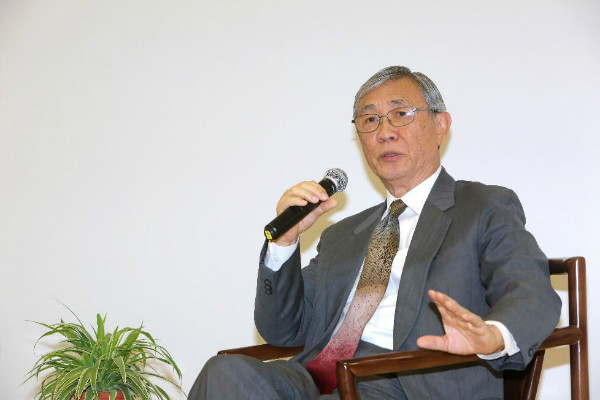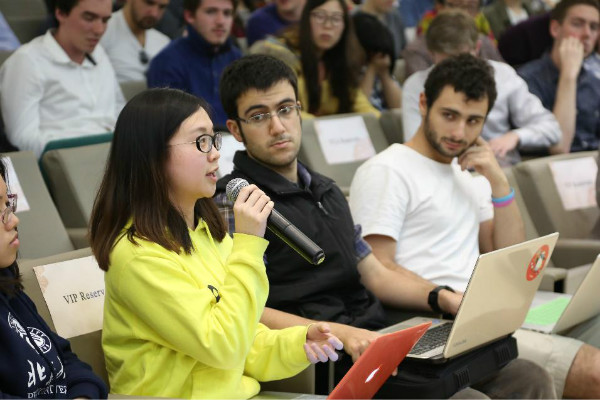On April 20th, 2016, Professor Chang Hsin Kang, former President of City University of Hong Kong, gave a lecture at Yenching Academy titled “A Long and Hard Look at China”. In the lecture, which was part of the China Studies Lecture Series held throughout the semester, Professor Chang shared his academic experiences as well as his personal role as an advocate for the New Silk Road Initiative.

Professor Chang first shared some of the pictures he has taken while traveling in China since 1972, thus showcasing the country’s dramatic transformation over the last 40 years. By melding personal experience with larger historical context, Professor Chang offered powerful insight into the changes that have shaped China today.
A noted advocate for the New Silk Road Initiative, Professor Chang then shared his research on the historic evolution of the route, with a focus on how technological advancements have driven changes along the road.
Professor Chang traced the history of the Silk Road from Zhang Qian in the 2ndCentury BC to Xuan Zang in the 7th Century AD and Ibn Batutah in the 14th Century AD. He also shared his personal travels throughout Asia, Europe, and Africa. Although Professor Chang’s academic background is in biomedical engineering, he isan impassioned advocate for understanding the societal impact of broadermodernization and the importance of multiculturalism.

“I think the greatest cultural wealth often comes from the clash and assimilation of different civilizations. This rich heritage exists in our religions, ethnicities, languages, customs and even our ethics and emotions.” Professor Chang said. “We live in such a complicated global environment right now, so it is important to listen to other cultures and simultaneously rethink our own culture.”
For example, Professor Chang said, China’s indigenous religion has two major components. While many Western scholars focus on the religion’s emphasis onnature worship, they often overlook ancestral worship – and the unique social order and family-based ethics that result. This is an interesting part of China’s culture, which can have implications for the world beyond China’s shores.
Finally, Professor Chang asked, “Since America can have its exceptionalism in many fields, can we accept a unique Chinese exceptionalism to many political, ethical and societal concepts?” For example, China’s population, historical heritage and cultural assimilation are different from any other nation in the world. Like every nation, China is therefore special in its own ways. However, China has traditionally emphasized moderation and inclusivity, and has discouraged exceptionalism. Will this change in the coming decades? Will China? Will the world? Professor Chang closed by asking these pointed questions, and encouraging Scholars to help shape the answers in a way that will benefit the world.
